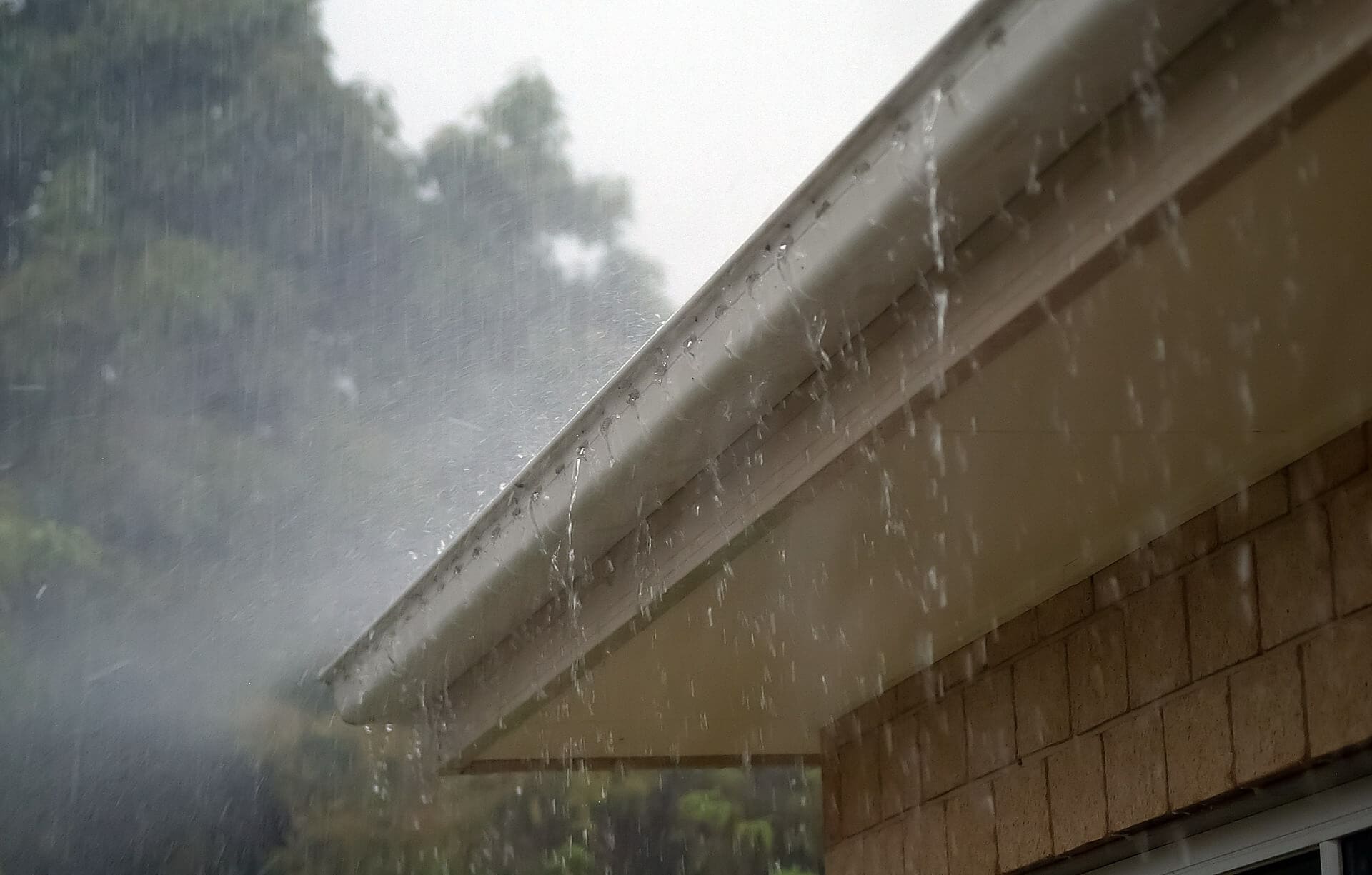I am a huge fan of DIY. I’ve re-tiled the backsplash in my kitchen, laid tile in my living room, painted the entire house, and replaced baseboards. Until recently, there was one chore I refused to attempt. I’m terrified of heights (a.k.a. acrophobic), and I refused to clean the gutters on my house. Every year, I forked over a couple hundred bucks to hire a professional gutter cleaner. They did a good job, but I couldn’t help but feel guilty. All of that ended last week, and if I can conquer my fears, so can you.
First you’ll need to get the right tools. Your shopping list should look something like this:
- Ladder
- Tarp
- Buckets
- S-hooks
- Trowel
- Work gloves
- Safety goggles
- Plastic bags with handles
- Garden house
- Telescoping gutter-cleaning lense
- Plumbers snake
Step 1: Position the Ladder and Tarp
If you’re living in a single story home, a four-legged ladder will do the trick. If have a two-story home, you’ll need to use an extension ladder. You’ll also want a ladder that has a strong shelf capable of holding a large bucket.
When you’re ready, place the tarp underneath a gutter near a downspout. This will help to catch excess debris. Afterwards, position your ladder near the downspout. Be prepared to move the ladder and downspout several times as you make your way around the house.
Step 2: Ready Your Tools
Place your trowel and several plastic bags in a large 5-gallon bucket. Use an S-hook to hang the bucket on the ladder. You can also place it on the shelf. Before you climb up, tell a friend or loved one that you’re planning to clean the gutters. The other person should be available to assist you in the case of an accident.
When you’re ready, put on your safety goggles and work gloves, and climb to the top of the ladder. Remove a plastic bag from the bucket and it hang it with another S-hook. Afterwards, use your trowel and your hand to clean out debris. Place the debris into the plastic bag, and drop it onto the tarp when it’s full. Pull out another plastic bag and repeat. Move the tarp and the ladder away from the downspout as you go.
Step 3: Wash Away the Drain
After removing the bulky debris from the gutter, position yourself at the opposite end of the downspout. Use your garden hose to wash away girt, grime, and other small debris. You can also try using a gutter-cleaning nozzle or pistol-grip nozzle. The gutter-cleaning nozzle will allow you to leave the bulk of the hose on the ground, while the pistol trigger grip can be easily hung on the gutter.
Other Considerations
If water isn’t draining from the downspout, you have two options. Your first option is to position the hose at the bottom of the downspout. Turn on the water, and the blockage should dislodge itself. If that doesn’t work, use the plumber’s snake from the bottom of the downspout to break up the blockage.
Ideally, gutters should be cleaned twice per year: one in spring and once in fall. This helps to prevent rust and water damage. While cleaning your gutters, it’s also imperative to be aware of nearby power lines. If you damage the line, you can cause larger problems than a clogged gutter. If you want to avoid these challenges, consider hiring someone to clean your gutters.
That said, now that I’ve cleaned my gutters, I honestly say, “it wasn’t that bad.” I hope you can use my experience and advice to conquer your own gutters.







